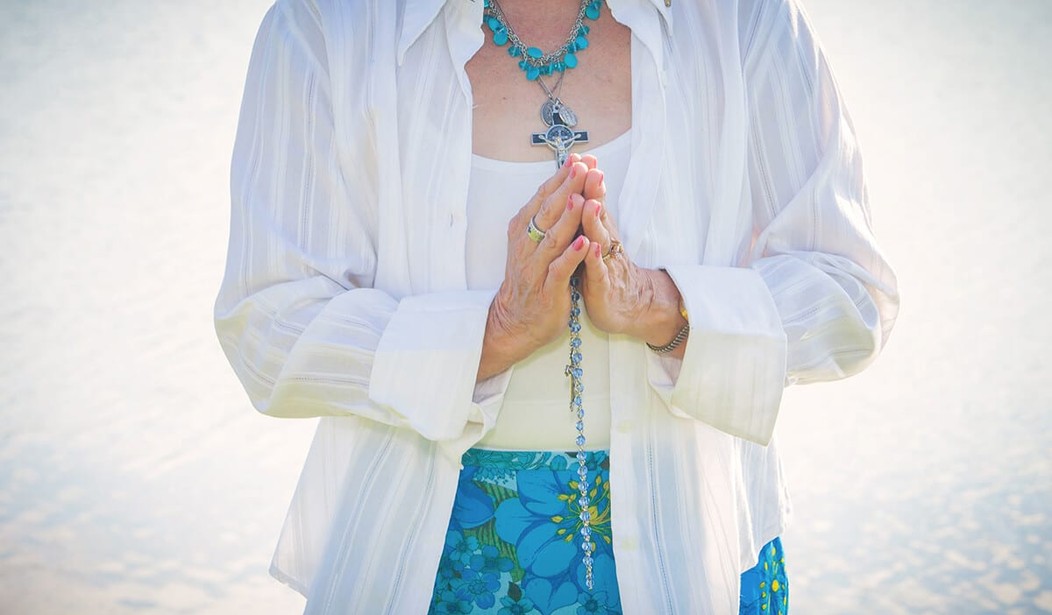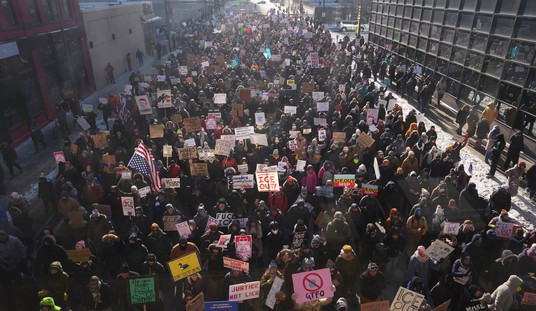On Thursday, the U.S. Supreme Court defended the First Amendment right to pray in a strange case where police searching a woman’s home ordered her not to pray. The Court did not rule in her favor, but insisted that she have her day in court after her case was denied without a hearing in lower courts.
“There can be no doubt that the First Amendment protects the right to pray. Prayer unquestionably constitutes the ‘exercise’ of religion,” the Supreme Court unanimously ruled. Police may have the right to prevent prayer in specific cases, when a suspect uses it to delay arrest for example, but the woman does have an important case that must be heard.
“The court held that Mary Anne Sause was allowed to have her day in court,” Stephanie Taub, senior counsel with First Liberty Institute, told PJ Media on Thursday. “Her case was dismissed at the very early stages in court. The Supreme Court’s ruling clarified what the law is and sent the case back down so that she can have her day in court.”
Taub noted that First Liberty was not expecting a decision in the case, Mary Anne Sause v. Timothy J. Bauer. “We asked the Supreme Court a few months ago to hear this case. Then they just decided this morning that they don’t need to hear the case. They’re automatically going to grant in favor of Mary Anne Sause.”
First Liberty got involved after the District Court ruled that “the police officers ordering her to stop praying didn’t burden her religious freedom under the First Amendment of the Constitution at all,” Taub explained. “We got involved because it was a pretty egregious statement.”
“The Court of Appeals for the Tenth Circuit said that even if a constitutional violation occurred, then the police are protected because there hasn’t been another case with similar enough facts,” she explained. The Supreme Court demolished that argument. “It doesn’t matter that there hasn’t been another case exactly on point.”
For this reason, Taub described the ruling as a “great victory.” Even so, it seems like a tragedy that the case needed to reach the Supreme Court at all. Somehow, American courts did not believe that religious freedom was violated when Sause “knelt and began to pray but one of the officers ordered her to stop.”
Even so, thanks to this case, “It is a clearly established right that you have the right to pray,” the First Liberty counsel said.
Beyond that, the case “could have wider implications for qualified immunity, the doctrine that when you’re suing a government official then you need to have similar cases, another court has to decide that what you’re alleging is a constitutional violation.”
Taub also noted that the decision “definitely reinforces” the right of people to pray in various settings, including students in a public school praying on their own time.
Finally, this ruling centered on “protecting the religious liberties of private citizens in one of the most sacred and protected places in legal doctrine, in the home.” Taub insisted that Mary Anne Sause v. Timothy J. Bauer would “bolster your constitutional rights when you’re at home.”
This is just the beginning of Sause’s struggle for justice. While the Supreme Court ruled that the police officer’s alleged action may have violated her First Amendment rights, it did not actually decide the case. Lower courts must now consider the merits of her side and make a complete judgment.
No longer can they merely dismiss her case out of hand, however. This unanimous Supreme Court decision upheld First Amendment religious freedom in a situation that should not have reached the Court. Even so, it is heartening that Sause will finally have her day in court. Whether or not she will win remains to be seen.








Join the conversation as a VIP Member